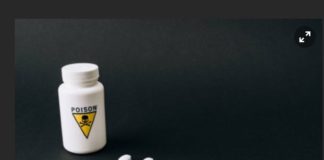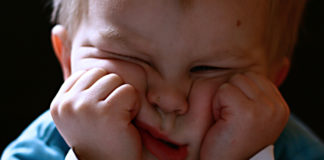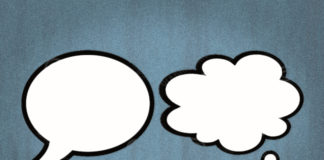Tag: misdiagnosis
Post-Acute Withdrawal Syndrome (PAWS): Why Don’t We Know More About It?
Persistent antidepressant withdrawal is a debilitating experience, but little research exists about its prevalence and treatment.
Antidepressant Withdrawal Is Common and Debilitating
Those using antidepressants long-term were more likely to experience withdrawal and to have severe withdrawal symptoms.
Antidepressant Withdrawal Commonly Misdiagnosed as “Mental Illness”
A new study reveals that more than two-thirds of patients experiencing antidepressant withdrawal were misdiagnosed with psychiatric disorders.
Reversing My Diagnosis
I was fine until traumatic events collided and pushed me to a state of emotional crisis. Yet I emerged this time as a different person, and knew I had to exit the mainstream mental health system.
Review: “(Mis)Diagnosed: How Bias Distorts Our Perception of Mental Health”
Psychiatric diagnoses can be shaped by prejudice, reflecting biases that ignore trauma, diminish populations, and invalidate humanity and experience.
Neuropsychological Tests Reveal Consequences of Polypharmacy
Neuropsychological assessments reveal the cognitive, occupational, and social impact of polypharmacy in psychiatry.
Iatrogenic Domino: I Was Poisoned by Polypharmacy
I did not suddenly develop some perverse form of mental illness out of thin air. I was a victim of repeated misdiagnoses, unrecognized adverse drug reactions/drug toxicity, and profound polypharmacy.
The Hopkins Doctor Diagnoses Me by Ann Bracken
The Hopkins psychiatrist glances up at me,
then looks at my chart.
“I remember the first time—and the second—when the depression lifted
I felt like a party girl.”
How long did that last?
“A couple of days…three, maybe.”
That’s a couple of days too long.
You have all the signs of bipolar II.
From Stoned to “Schizophrenic”: My Mental Healthcare Journey
During a period of self-doubt, I chose to see a psychiatrist because I was engulfed in negative thoughts and couldn't find a direction in life. The slightest joys came only when I was high. Though my weed addiction was likely causing all of my symptoms, my psychiatrist’s response was to prescribe antipsychotics.
“Dad, You Were Right”: I Got Better When I Stopped Treatment
Through all the years that I was a mental patient, my parents were excellent advocates who constantly questioned what the docs were doing, even though my own faith in psychiatry was unwavering.... Amazingly, what cured me was not some type of “treatment,” but getting away from drugs and therapy.
Minimal Evidence for Disruptive Mood Dysregulation Disorder in Childhood
Researchers offer a critical take on the inclusion of the Disruptive Mood Dysregulation Disorder in the DSM-V.
The Unsung Psychiatric Impact of Strep Throat
A sea change is needed in the evaluation of children with perceived psychological disturbances. Parents are told that their child has a fictitious biochemical imbalance in the brain while real medical disorders are overlooked. In our family's case, it was Pediatric Autoimmune Neuropsychiatric Disorder Associated with Strep (PANDAS).
Primary Care Practitioners May Mistake Irritability as Bipolar Disorder in Youth
Family medicine and pediatric providers are less confident in their assessment of irritability in youth than psychiatric providers, which may lead to overdiagnosis of bipolar disorder.
A Call for Obligatory Diagnostic Reporting and Appeals Mechanisms
Psychiatric diagnoses are ballooning in scope and in numbers, many have dramatic and life-changing consequences, reliability levels are poor, co-morbidity levels are high, and the validity of many are doubtful. Despite all this, they have escaped any kind of regulation. It's time for that to change.
Lyme is ‘All in Your Head’ – A Wake-up Call to...
Sufferers are desperate for mental health professionals to understand Lyme so that they will know to consider it as a potential differential diagnosis before plying a patient with psychotropic meds that may make matters worse.
The MD and the Imaginary Eating Disorder
He could have asked me if there was a specific event that had precipitated my suicide attempt. He could have asked if I had a history of trauma. He could have simply asked, “What happened?” “What are you feeling?” or “So what’s going on?” Nope. He chose to open our meeting with an accusatory remark about a make-believe eating disorder.
Culturally Numb
Experiencing emotional pain is a necessary part of life. Emotional pain often contains valuable lessons to help us on our journeys. We need to make sure we are not numbing our hearts to those that are hurting. We need to de-stigmatize the struggles, joys and pains that come with being human. We need to not just mindlessly pursue happiness - though we might think of that as an inalienable right - and avoid pain. We need to do the only thing that brings true joy: embrace all of life and each other, as we experience together all that makes us human.
“U.S. Doctors Advised to Screen Child Patients for Signs of Hunger”
The American Academy of Pediatrics came out with new recommendations that suggest doctors screen all of their child patients for hunger. About 16 million children in the US live in food scarcity and poverty that can lead to physical health issues as well as behavioral issues, which can then be misdiagnosed.
“Former Navy Pilot Sues U.S. Government Over Bipolar Diagnosis”
A former Navy pilot claims that a VA doctor misdiagnosed him with a mental disorder that prevented him from flying and ended his career. William Royster was told in 2004 that he was bipolar, that it was a permanent condition, and that he could no longer work in any capacity, according to the Navy Times. A different psychiatrist, however, later told Royster that he never met the criteria for diagnosis.
ADHD: A Destructive and Disempowering Label; Not an Illness
In recent years, we've seen an increasing number of articles and papers from psychiatrists in which they seem to be accepting at least some of the antipsychiatry criticisms, and appear interested in reforms. It is tempting to see this development as an indication of progress, but as in many aspects of life, things aren't always what they seem.
Medical Nemesis Revisited: Physician-Caused Anger, Despair & Death
Regaining power over our own health was the goal of Ivan Illich’s 1976 book Medical Nemesis, which detailed an epidemic of physician-caused death and illness. This epidemic continues, and so does an epidemic of physician-caused anger, despair and crazy-appearing behaviors. In 2013, the Journal of Patient Safety reported that the “true number of premature deaths associated with preventable harm to patients is estimated at more than 400,000 per year,” making it the third leading cause of death in the United States It is especially drug use errors, communication failures and diagnostic errors that result in another medical nemesis: They can make us appear—and sometimes feel—like we’re “crazy.”

























